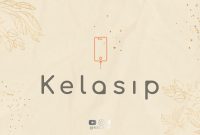When it comes to securing a spot in your dream university, the admission assessments can be a challenging hurdle to overcome. With the increasing competitiveness, it’s crucial to have a strategic approach that sets you apart from the rest. In this blog article, we will guide you through proven techniques and tips to excel in university admission assessments.
Firstly, it’s important to understand the significance of these assessments. Universities rely on admission assessments to evaluate the academic potential, critical thinking skills, and suitability of applicants. Therefore, a well-prepared and strategic approach can significantly increase your chances of getting accepted into your desired program.
Understand the Assessment Criteria
Before diving into the preparation process, it is essential to familiarize yourself with the specific assessment criteria used by universities. These criteria may vary from one institution to another, but they generally assess various aspects of an applicant’s profile, such as academic performance, extracurricular activities, personal statements, recommendation letters, and entrance exam scores. By understanding the assessment criteria, you can tailor your preparation to meet the expectations of the university.
Academic Performance
Universities often consider an applicant’s academic performance in high school or previous educational institutions. They may assess factors such as GPA, class rank, and the difficulty of courses taken. It is important to maintain a strong academic record throughout your high school years and ensure that you challenge yourself by taking advanced or honors courses whenever possible.
Extracurricular Activities
Universities also value students who have actively participated in extracurricular activities. These activities can include sports, clubs, community service, leadership positions, or any other involvement outside of the classroom. When preparing for admission assessments, it’s essential to highlight your achievements and experiences in these activities, as they demonstrate your ability to balance academics with other pursuits, showcase your leadership potential, and highlight your interests and passions.
Personal Statements
Personal statements provide an opportunity for applicants to showcase their unique qualities, experiences, and aspirations. It allows the admissions committee to gain insights into your personality, motivations, and goals. When crafting your personal statement, take the time to reflect on your life experiences, challenges you have overcome, and how they have shaped your aspirations. Be genuine and authentic in your writing, expressing your passion for the chosen field of study and your potential contributions to the university community.
Recommendation Letters
Recommendation letters offer a perspective on your character, work ethic, and potential as a student. They are typically written by teachers, mentors, or employers who have had the opportunity to observe your abilities and achievements. When requesting recommendation letters, choose individuals who know you well and can provide specific examples of your strengths. It’s important to give your recommenders ample time to write the letters, provide them with necessary information about your accomplishments and goals, and express your gratitude for their support.
Entrance Exam Scores
Entrance exams play a significant role in the admission assessment process for many universities. These exams vary depending on the country and the specific university you are applying to. Common examples include the SAT, ACT, MCAT, or LSAT. It is essential to familiarize yourself with the format, content, and scoring system of the exams that are required by your chosen institutions. Consider enrolling in preparatory courses, utilizing online resources, and practicing sample questions to improve your performance in these exams.
Research the University
Each university has its own unique values, goals, and academic requirements. Take the time to thoroughly research the university you are applying to. Understanding the university’s mission, faculty, programs, and any specific requirements for admission will allow you to tailor your application and demonstrate your genuine interest in the institution.
Academic Programs and Faculty
Research the academic programs offered by the university and the faculty members who are renowned in their respective fields. Look for programs that align with your interests and aspirations, and explore the faculty members’ research areas to find potential mentors who share similar academic interests. This research will not only help you make an informed decision about the university but also allow you to highlight your interest in specific programs in your application.
University Culture and Values
Every university has its own unique culture and values. Take the time to explore the university’s website, read their mission statement, and delve into their core values. Consider how these align with your own values and aspirations. Understanding the university’s culture will enable you to showcase your fit with the institution and demonstrate your potential to contribute to the university community.
Admission Requirements
Universities often have specific admission requirements that applicants must meet. These requirements can include minimum GPA, prerequisite courses, standardized test scores, or additional application components. Understanding these requirements will help you ensure that you meet all the necessary criteria and provide the required documentation in your application. It is crucial to start early and plan your application timeline accordingly to meet all the deadlines.
Prepare for Entrance Exams
Entrance exams play a crucial role in university admission assessments. Whether it’s standardized tests like the SAT or ACT, subject-specific exams, or university-specific entrance tests, thorough preparation is vital. Familiarize yourself with the exam format, practice sample questions, and consider enrolling in preparatory courses or hiring a tutor if needed.
Understand the Exam Format
Each entrance exam has its own unique format, including the number of sections, time limits, and types of questions. Take the time to familiarize yourself with the exam format by reviewing official study guides or online resources. Understand the scoring system and how different sections are weighted to prioritize your preparation accordingly.
Create a Study Plan
A well-structured study plan is essential for effective exam preparation. Start by identifying your strengths and weaknesses in each exam section. Allocate more time to the areas where you need improvement while maintaining consistent practice in areas where you excel. Break down the material into manageable chunks and create a study schedule that allows for regular practice sessions leading up to the exam date.
Utilize Study Resources
There are numerous study resources available to help you prepare for entrance exams. Official study guides provided by the exam organizers are often the most reliable sources of information. Additionally, consider online courses, practice tests, and review books that are specifically tailored for the exam you are taking. Utilize these resources to gain a better understanding of the exam content, practice time management, and familiarize yourself with the types of questions you may encounter.
Practice Time Management
Time management is crucial during entrance exams, as they are often timed. Practice under timed conditions to simulate the actual exam experience. This will help you improve your speed and accuracy, ensuring that you can complete the exam within the allotted time. Use strategies such as skipping difficult questions and returning to them later if time permits.
Consider Professional Help
If you find yourself struggling with certain sections or need additional guidance, consider seeking professional help. Enrolling in preparatory courses or hiring a tutor can provide personalized attention, targeted instruction, and valuable tips for exam success. These professionals have extensive experience in exam preparation and can offer strategies to improve your performance.
Craft a Compelling Personal Statement
Your personal statement provides an opportunity to showcase your unique experiences, passions, and goals. Take the time to reflect on your journey, highlighting relevant achievements, extracurricular activities, and community involvement. Craft a compelling narrative that demonstrates your motivation, resilience, and potential to contribute to the university community.
Reflect on Your Experiences
Begin by reflecting on your life experiences, both inside and outside the classroom. Identify impactful moments, challenges you have overcome, or influential individuals who have shaped your journey. Consider how these experiences have shaped your values, aspirations, and desire to pursue higher education. Reflecting on these experiences will help you identify key themes and stories to include in your personal statement.
Showcase Your Passion and Motivation
Universities are interested in applicants who are passionate about their chosen field of study. Use your personal statement to demonstrate your genuine interest and motivation. Discuss why you are drawn to the subject, any experiences that have solidified your passion, and how you envision using your education to make a positive impact in the future. Your passion and motivation should shine through your writing and capture the attention of the admissions committee.
Highlight Your Achievements
Your personal statement is an opportunity to highlight your achievements and how they demonstrate your potential as a successful university student. Discuss any academic awards, leadership roles, research projects, or community service activities that you have been engaged in. Focus on the skills and qualities you developed through these experiences, such as critical thinking, teamwork, problem-solving, or adaptability.
Be Genuine and Authentic
Avoid writing what you think the admissions committee wants to hear and instead be genuine and authentic in your personal statement. Your personal statement is an opportunity for the admissions committee to get to know you as an individual. Share your unique perspectives, insights, and personal anecdotes that showcase your personality and values. Be confident in your own voice and convey your story in a compelling and engaging manner.
Request Strong Recommendation Letters
Recommendation letters offer insight into your character, work ethic, and potential as a student. Reach out toteachers, mentors, or employers who can provide a strong endorsement of your abilities. It is important to choose recommenders who know you well and can speak to your strengths and potential. When making your request, provide them with ample time to write the letters and provide them with relevant information about your accomplishments, goals, and the university or program you are applying to. This will help them tailor their letters to showcase your suitability for the specific institution or program.
Selecting the Right Recommenders
When selecting recommenders, consider individuals who have had a significant impact on your academic or professional development. This could include teachers or professors who have taught you in challenging courses and can speak to your academic abilities and potential. Coaches or advisors from extracurricular activities can provide insights into your leadership skills, teamwork, and dedication. Employers or supervisors can highlight your work ethic, professionalism, and ability to excel in a professional setting. Choose individuals who can provide specific examples and anecdotes that showcase your strengths and potential.
Building Strong Relationships
Building strong relationships with your recommenders is crucial to ensuring that they can write compelling and personalized recommendation letters on your behalf. Take the time to engage with your teachers, mentors, or employers outside of the classroom or workplace. Attend office hours, ask thoughtful questions, and actively participate in class or work-related discussions. By demonstrating your interest and dedication, you will give your recommenders a deeper understanding of your abilities and potential, making their letters more impactful.
Providing Relevant Information
When requesting recommendation letters, provide your recommenders with all the necessary information to write a strong letter. This includes your updated resume or CV, a copy of your personal statement, a list of your major accomplishments and goals, and any specific points you would like them to address in their letters. By providing this information, you guide your recommenders in highlighting the most relevant aspects of your profile and aligning their letters with your overall application strategy.
Following Up and Expressing Gratitude
After your recommenders have submitted their letters, it is essential to follow up with a thank-you note or email expressing your gratitude for their support. Let them know that you appreciate the time and effort they put into writing the recommendation letters. Maintaining strong relationships with your recommenders even after the application process can be beneficial for future opportunities, such as internships, scholarships, or graduate school applications.
Develop Effective Study Habits
Success in university admission assessments often requires diligent study habits. Establishing effective study habits will not only help you excel in entrance exams but also prepare you for the rigors of university coursework. Here are some strategies to develop effective study habits:
Create a Study Schedule
Creating a study schedule is crucial for maintaining consistency and discipline in your preparation. Consider your other commitments, such as school, extracurricular activities, and work, and allocate specific time slots for studying. Break down your study sessions into manageable chunks, focusing on different subjects or topics each day. Having a schedule will help you stay organized, track your progress, and ensure that you cover all the necessary material.
Utilize Active Learning Techniques
Active learning techniques involve engaging with the material actively rather than passively reading or listening. Examples of active learning techniques include summarizing information in your own words, teaching the material to someone else, creating flashcards or mnemonic devices, or solving practice problems. By actively engaging with the material, you enhance your understanding, retention, and ability to apply the knowledge during exams.
Break Down Material into Manageable Chunks
Breaking down the material into smaller, manageable chunks makes studying more manageable and less overwhelming. Rather than trying to tackle everything at once, divide the material into topics or chapters and focus on mastering one at a time. This approach allows for better comprehension, retention, and the ability to identify and address any areas of weakness.
Practice Self-Testing
Self-testing is an effective study technique that involves testing your knowledge and understanding of the material without any external aids. This can be done through practice questions, flashcards, or creating your own quizzes. Self-testing helps reinforce your learning, identify areas that require further review, and familiarize yourself with the types of questions you may encounter in exams.
Find a Productive Study Environment
Creating a productive study environment is essential for effective studying. Find a quiet place where you can focus and minimize distractions. Ensure that you have all the necessary study materials, such as textbooks, notebooks, and online resources, readily available. Experiment with different study environments to find the one that suits you best, whether it’s a library, a coffee shop, or a quiet corner in your home.
Take Regular Breaks
While studying is important, taking regular breaks is equally crucial. Research suggests that taking short breaks during study sessions can improve focus, concentration, and overall productivity. Schedule short breaks every hour or so, allowing yourself time to relax, stretch, and recharge. Use this time to engage in activities that help clear your mind and reduce stress, such as going for a walk, listening to music, or practicing mindfulness exercises.
Enhance Critical Thinking Skills
Universities value students who possess strong critical thinking skills. These skills involve analyzing, evaluating, and interpreting information to make informed decisions and solve problems effectively. Here are some strategies to enhance your critical thinking skills:
Read Widely
Reading widely exposes you to different perspectives, ideas, and styles of writing. It helps develop your analytical thinking, expands your knowledge base, and enhances your ability to think critically. Read books, articles, and research papers related to your field of interest, as well as materials from diverse disciplines. Challenge yourself by exploring complex and thought-provoking texts, and actively engage with the material by reflecting on the author’s arguments, identifying strengths and weaknesses, and forming your own opinions.
Participate in Debates and Discussions
Engaging in debates and discussions allows you to practice critical thinking in a collaborative setting. Join debate clubs, discussion groups, or online forums where you can engage in thoughtful and respectful conversations on various topics. These interactions provide opportunities to analyze different perspectives, evaluate evidence, and develop persuasive arguments. The ability to listen actively, consider different viewpoints, and respond thoughtfully is essential for honing your critical thinking skills.
Solving puzzles and brain teasers is a fun and engaging way to exercise your critical thinking skills. These activities challenge your problem-solving abilities, logical reasoning, and creativity. Engage in activities such as crossword puzzles, sudoku, riddles, or strategy games. They require you to think outside the box, make connections, and apply different problem-solving techniques.
Question Assumptions
Developing critical thinking skills involves questioning assumptions and challenging established beliefs. When presented with information or arguments, analyze them critically by asking questions such as “What evidence supports this claim?”, “Are there any biases or logical fallacies present?”, or “Are there alternative explanations or perspectives to consider?”. By questioning assumptions, you develop a more comprehensive and nuanced understanding of the subject matter.
Apply Critical Thinking in Daily Life
Critical thinking is not limited to academic settings; it can be applied to everyday situations as well. Practice critical thinking skills in your daily life by evaluating the credibility of news sources, analyzing advertisements for persuasive techniques, or critically assessing arguments made by friends or family members. By actively engaging in critical thinking outside of academic contexts, you develop a habit of thinking critically and applying these skills in various aspects of your life.
Prepare for Interviews
Many universities conduct interviews to assess applicants’ communication skills and suitability for the program. Here are some strategies to help you prepare for interviews:
Research Common Interview Questions
Research common interview questions that are often asked during university admissions interviews. This will help you anticipate the types of questions you may encounter and prepare thoughtful and well-structured responses. Common interview questions include “Tell us about yourself,” “Why do you want to attend this university?”, and “How do you envision contributing to our university community?”. Practice answering these questions in a concise and confident manner.
Reflect on Your Experiences and Goals
Reflect on your experiences, achievements, and goals before the interview. Consider how these align with the university’s values, programs, and opportunities. Identify specific examples that highlight your strengths, leadership skills, and passion for the chosen field of study. Reflecting on your experiences will help you articulate your unique qualities and demonstrate your fit with the university.
Conduct Mock Interviews
Conducting mock interviews with friends, family members, or mentors can help you gain confidence and practice your interview skills. Ask them to simulate a real interview scenario and provide feedback on your responses, body language, and overall presentation. This will help you identify areas for improvement and become more comfortable with the interview process.
Dress Professionally and Present Yourself Confidently
First impressions matter during interviews. Dress professionally in attire that is appropriate for the setting and showcases your respect for the interview process. Pay attention to your body language, maintain eye contact, and speak clearly and confidently. Show enthusiasm for the university and the program you are applying to, as it demonstrates your genuine interest and motivation.
Prepare Questionsto Ask
Prepare a list of thoughtful and specific questions to ask the interviewer. This demonstrates your engagement and genuine interest in the university and the program. Questions could include inquiring about research opportunities, internship placements, or extracurricular activities. Avoid asking questions that can easily be found on the university’s website, as it may convey a lack of preparation.
Showcase Your Unique Qualities
During the interview, focus on showcasing your unique qualities and what sets you apart from other applicants. Share stories, anecdotes, or experiences that highlight your strengths, values, and potential contributions to the university community. Emphasize your skills, achievements, and personal growth, demonstrating how these experiences have prepared you for success in the chosen field of study.
Seek Guidance and Feedback
Don’t hesitate to seek guidance from teachers, mentors, or professional consultants who can provide valuable insights and feedback on your application. They can help you identify areas of improvement and offer guidance on how to present your strengths effectively.
Consult with Teachers and Mentors
Teachers and mentors who have guided you throughout your academic journey can provide valuable feedback on your application materials. Schedule meetings with them to discuss your application strategy, personal statement, and other components. They can provide insights into your strengths and weaknesses, offer suggestions for improvement, and help you highlight your unique qualities and achievements.
Consider Professional Consultants
If you feel that you need additional guidance and support, consider working with professional consultants who specialize in university admissions. These consultants have extensive experience in the admissions process and can provide personalized advice and strategies. They can review your application materials, conduct mock interviews, and help you develop a compelling narrative that showcases your strengths and potential.
Utilize University Resources
Many universities have resources available to assist students with their application process. Take advantage of workshops, information sessions, and counseling services offered by the university’s admissions office. These resources can provide valuable insights into the admissions process, offer guidance on writing personal statements, and provide tips for interview preparation.
Seek Peer Feedback
Peer feedback can also be valuable in improving your application materials. Share your personal statement, essays, or other components with trusted classmates or friends who can provide constructive criticism. They may offer suggestions for clarity, coherence, or areas that require more elaboration. Consider their feedback and make revisions accordingly.
Stay Calm and Confident
Lastly, remember to stay calm and confident throughout the admission assessment process. Trust in the preparation you have done and believe in your abilities. Maintain a positive mindset, as it can greatly impact your performance during exams and interviews.
Practice Self-Care
Self-care is essential during the stressful admission assessment process. Take care of your physical and mental well-being by getting enough sleep, eating nutritious meals, and engaging in regular exercise. Find healthy ways to manage stress, such as practicing mindfulness or engaging in hobbies that bring you joy and relaxation.
Visualize Success
Visualization techniques can be helpful in boosting confidence and reducing anxiety. Take a few moments each day to visualize yourself succeeding in the admission assessments, receiving acceptance letters, and thriving in your chosen university. Visualize yourself confidently answering interview questions, performing well in exams, and showcasing your unique qualities. This positive visualization can help boost your confidence and belief in your abilities.
Maintain a Positive Mindset
Adopting a positive mindset is crucial throughout the admission assessment process. Rather than focusing on the potential challenges or setbacks, remind yourself of your strengths, achievements, and the effort you have put into your preparation. Surround yourself with a supportive network of family, friends, and mentors who believe in your abilities and can provide encouragement and motivation.
In conclusion, succeeding in university admission assessments requires a strategic approach. By understanding the assessment criteria, researching the university, preparing for entrance exams, crafting a compelling personal statement, and developing effective study habits, you can enhance your chances of securing admission to your desired university. Remember to seek guidance, stay confident, and put your best foot forward. Your hard work and strategic approach will undoubtedly pay off in the end.




